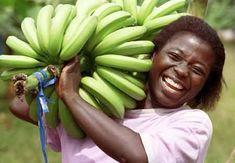
The Fairtrade Foundation unveiled its four-year plan for transforming global trade on Tuesday, as it battled to fend off controversial criticism of the movement’s relevance at the start of this year’s Fairtrade Fortnight.
The government has pledged £1.2 million to back the Tipping the Balance initiative over the next two years, as the Fairtrade Foundation aims to increase the impact of the brand on producers in developing countries, shift the brand into the broader consumer focus, expand the commitment of businesses to the cause, grow market share and take sales to a new level, and scale up the Fairtrade system.
By 2012, the Fairtrade Foundation wants twice as many producers to benefit from sales of branded products in the UK, three-quarters of UK consumers to recognise the Fairtrade mark and its values, and for the UK market for Fairtrade-branded products to increase four-fold to £2 billion a year.
The aims were set down after a strategic review, and are intended to build on strong growth last year. Sales of Fairtrade products reached almost £500m in 2007. Bananas remain the most popular Fairtrade product, with sales rising 130 per cent year on year to £150m in 2007.
Mike Gidney, chair of the Fairtrade Foundation, said Fairtrade has already beaten “unassailable odds” to get where it is today. He said: “What we have come up with is a very clear set of ambitions for the next four years. Fairtrade has come of age and we are now in the position in which we can tip the balance, especially in areas where Fairtrade has become famous, such as bananas and coffee.”
Douglas Alexander MP, secretary of state for international development, added: “I am proud that in the UK we have the widest and the deepest market for Fairtrade anywhere in the world. It is appropriate and right that the government plays its part.”
But the start of Fairtrade Fortnight this week has not been without controversy. The Adam Smith Institute released its Unfair Trade report last week to coincide with the beginning of the promotional fortnight. Author Marc Sidwell wrote: “Fairtrade is unfair. It offers only a very small number of farmers a higher, fixed price for their goods. These higher prices come at the expense of the great majority of farmers, who - unable to qualify for Fairtrade certification - are left worse off.” He went on to claim that four-fifths of the produce sold by Fairtrade-certified farmers ends up as non-Fairtrade goods, and that just 10 per cent of the premium consumers pay actually goes to the producer, with retailers pocketing the rest.
The publication of Unfair Trade followed the news that consumers are confused about Fairtrade.
Harriet Lamb, executive director of the Fairtrade Foundation, stood firm against the criticism. She said: “Fairtrade is like a mosaic made up of millions of little changes that may not look like very much, but they add up to a vision of how trade can be more fair and how we can begin to transform trade.”



